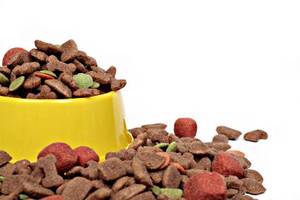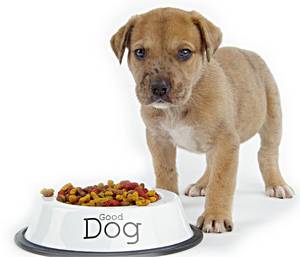Home-made Dog Diets And Cat Diets

There is little doubt that homemade diets for pets are becoming increasing popular. Why is this? Well, there are as many reasons as there are dog and cat owners.
Some owners object to commercial pet food, believing that it is over-processed and want a more "natural" option. Other owners believe that homemade foods are more nutritious for their pets. Yet others believe that a homemade diet will be less expensive than a commercial diet. Most of these beliefs are not correct. While there are sometimes valid reasons for homemade diets, for the most part, good quality commercial diets provide adequate nutrition and are generally more economical in terms of money and time.
Some medical conditions may mean that there is a need for a homemade diet - to meet specific nutritional requirements, when an an appropriate commercial food is not available, or the food available is not palatable to a pet.
For example, some pets with food allergies may not like commercial hypoallergenic diets and may need a specific diet prepared for them, avoiding food sources to which they react badly (diarrhea, vomiting and skin disease are some allergy symptoms).
When preparing a homemade diet for your pet, it is extremely important to ensure that it is "complete and balanced" for that species and breed. This will require veterinary intervention and a recommendation on the appropriate nutrients and amounts, based on the species, weight, age and other medical considerations.
Pet nutrient requirements are complex, with dogs requiring 38 different nutrients every single day, and cats needing 40. This means that preparing a homemade food which is nutritionally complete for your pet is a careful balancing act.
Unlike humans, who require a variety of foods in their diet to meet nutritional requirements, pets generally do better with the same food day after day. Sudden changes in food will often lead to digestive upsets. Published nutrient requirements for dogs and cats can be obtained from the National Research Council of the National Academies (NRC) or from The Association of American Feed Control Officials (AFFCO).
|
Pet food additives
|
| Pet Shed's most popular vitamin and mineral supplements for your dog or cat's diet: |
Good commercial diets will contain a nutritional adequacy statement on the label, stating that the food has been found by AFFCO feeding trials to provide complete and balanced nutrition for a pet species at a particular age (e.g a growing kitten). Homemade diets have not been adequately tested for nutrient content, bioavailability of nutrients, palatability or digestibility, so we cannot be sure that these are providing all the appropriate nutrients in the appropriate amounts for an animal.
It is important therefore that the animalon a home-made diet is regularly checked by a vet to ensure that it is not suffering from any type of malnutrition. The diet may need to be rebalanced from the initial formulation if some essential nutrient is lacking. A recent survey in the US found that 90% of homemade diets were not nutritionally adequate for adult cats and dogs, so these are genuine concerns.
When formulating a diet, the first consideration is usually your pet's
energy requirement. The vet will work out how many calories the animal needs per day and base the formulation on this.
They will then work out a combination of fat, protein
and carbohydrate to meet this energy requirement. Vitamin and mineral sources will be added last, based on
deficiencies in the foods selected.
 Fat sources include vegetable oils such as soyabean oil or animal oils such as fish oil. Cats have an absolute
requirement for arachidonic acid in their diet, which is not present in vegetable oils, so they must have an animal
fat source. Fat is very important for palatability of foods also - those too low in fat will be unappealing to pets.
Fat sources include vegetable oils such as soyabean oil or animal oils such as fish oil. Cats have an absolute
requirement for arachidonic acid in their diet, which is not present in vegetable oils, so they must have an animal
fat source. Fat is very important for palatability of foods also - those too low in fat will be unappealing to pets.
Protein sources include eggs, cottage cheese, red meat, poultry, fish and tofu. Cats are obligate carnivores and must have a source of animal protein to provide their amino acid requirements. Generally, dogs also do better with animal proteins, as the amino acid content of these proteins more closely matches their needs than those of vegetables. Vegetable proteins can be deficient in such things as methionine, lysine and taurine.
Carbohydrate sources include rice, potatoes, pumpkin, corn, barley or pasta. Carbohydrates are usually balanced at a ratio of at least 1:1 with proteins. These are necessary for fiber, to maintain digestive tract health.
Pets, like humans, are susceptible to the common food poisoning bacteria, such as Salmonella, E. coli and Yersinia. Homemade foods, particularly meat components, should always be cooked in order to prevent this. Proper cooking will kill most of these bacteria and prevent food-borne illnesses in your pet. As cooking will remove many of the vitamins, vitamin and mineral supplements should be added last, preferably just prior to serving the food, as storage will also destroy much of their goodness. Minerals are hardier, but as these are generally incorporated with the vitamins, these can also be added at the end.
It is imperative that owners never substitute one food for another (e.g chicken for beef), as the nutrient profile of every food differs, and what can seem a minor change can result in a very big difference in the nutritional balance of the food. It can result in vitamin deficiencies or a lack of minerals, calories or protein, and lead to an unwell, malnourished pet.
Your vet will also be able to advise you how long the food can be stored for and whether it should be frozen or refrigerated. Again, always follow these instructions to ensure your pet's food is in the best condition and full of nutrients.
Spoiled food will not be very palatable either, so to ensure the maximum enjoyment and nutritional value of the food, always follow your veterinarian's instructions.
|
References
|
| 1. Elliott D. Home Made Diets. Proceedings of the 29th World Congress of the WSAVA,
2004. 2. www.petdiets.com 3. McGreevy P. Dog Lovers Companion. Fog City Press, San Francisco CA, USA, 2004. |